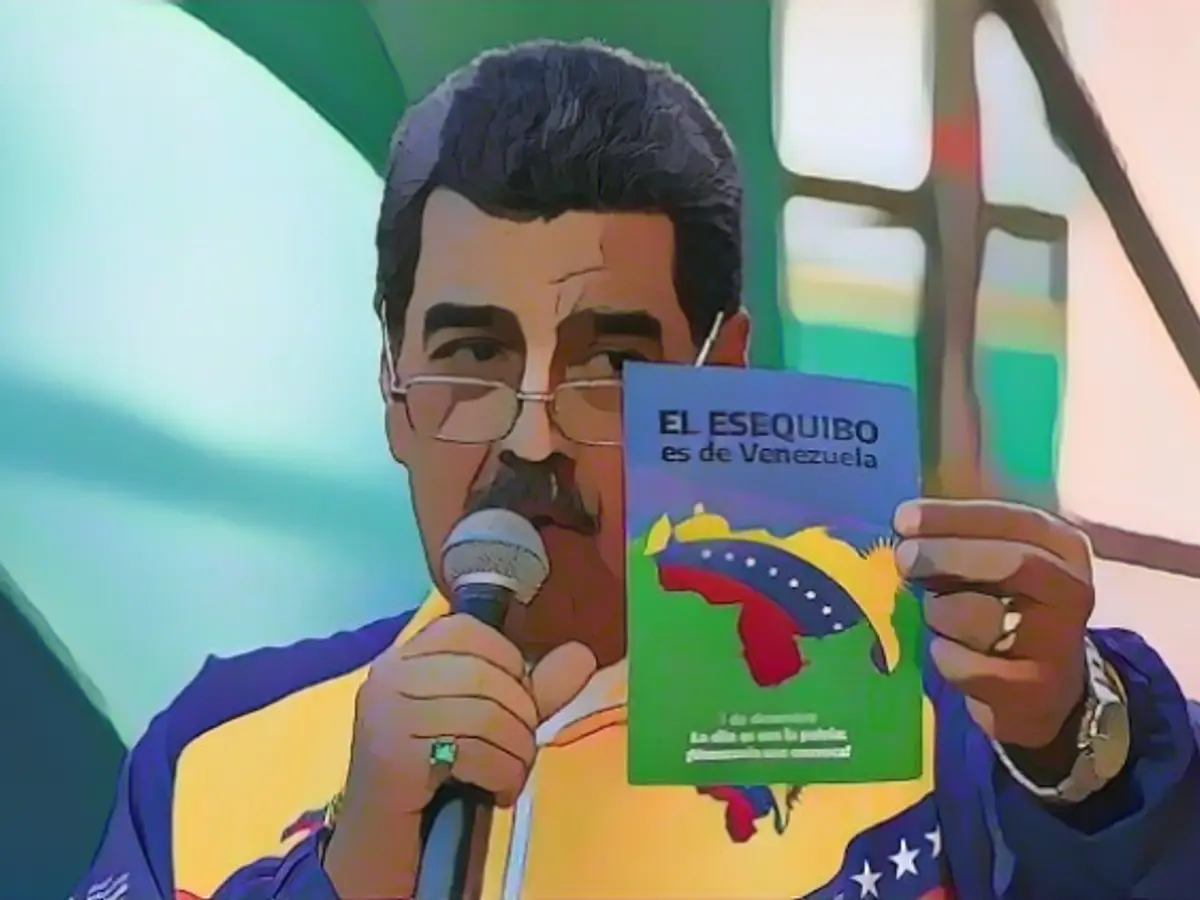Crisis summit with Maduro and Ali announced
Following significant oil discoveries off the coast of Guyana, an old border dispute with neighboring Venezuela has flared up again. The regional power is asking its own population whether a region of Guyana should not be part of its own territory. After massive tensions, mediation is now to take place.
The presidents of Venezuela and Guyana, Nicolás Maduro and Irfaan Ali, will meet on Thursday for a summit on their border dispute. The meeting will take place in the island state of St. Vincent and the Grenadines, announced the head of government there, Ralph Gonsalves. Caracas claims the oil-rich region of Essequibo, which has belonged to Guyana for more than a century. Experts currently consider an actual invasion to be unlikely and suspect that Maduro is conducting a domestic political maneuver before an election. Nevertheless, the militarily weaker Guyana feels strongly threatened.
Brazil's President Luiz Inácio Lula da Silva is also due to attend the meeting that has now been scheduled, as Gonsalves explained in his capacity as acting President of the Community of Latin American and Caribbean States (Celac). Several South American countries had called on Venezuela and Guyana to settle the dispute peacefully. Argentina, Brazil, Paraguay, Uruguay, Chile, Colombia, Ecuador and Peru warned in a joint statement against "unilateral actions" that could "lead to additional tensions".
Around 125,000 of the 800,000 Guyanese live in the Essequibo region, which makes up around two thirds of Guyana's territory. Guyana points out that the current border was determined by a court of arbitration in 1899. Venezuela, on the other hand, claims that the Essequibo River in the east of the region forms a natural border that was already recognized in 1777.
Caracas' desires increased in particular after the oil company ExxonMobil discovered an oil deposit in the area in 2015. In October, another significant oil discovery was made in the region, increasing Guyana's reserves to at least ten billion barrels - more than those of oil-rich Kuwait or the United Arab Emirates.
More than 10.4 million of the 20.7 million Venezuelans eligible to vote voted in favor of Venezuela's claim to Essequibo in a non-binding referendum a week ago. Shortly afterwards, President Maduro called for the area to be declared a Venezuelan province by law and for licenses to be issued for oil production.
Read also:
- Year of climate records: extreme is the new normal
- Precautionary arrests show Islamist terror threat
- SPD rules out budget resolution before the end of the year
- Numerous oil, gas and coal lobbyists at climate conference
The escalating border dispute between Venezuela and Guyana over the oil-rich region of Essequibo, which has seen significant oil discoveries by companies like ExxonMobil, has historical roots and is complicated by Venezuela's claims based on the Essequibo River. This ongoing issue, fueled by the potential wealth of oil reserves, has often been linked to wars and conflicts in the region.
Given the strategic importance of the oil reserves in Essequibo and the recent discovery of additional reserves, tensions between Venezuela and Guyana have attracted international attention, with neighboring countries like Brazil and several South American nations urging for a peaceful resolution to avoid wars and conflicts driven by oil interests.
Source: www.ntv.de








